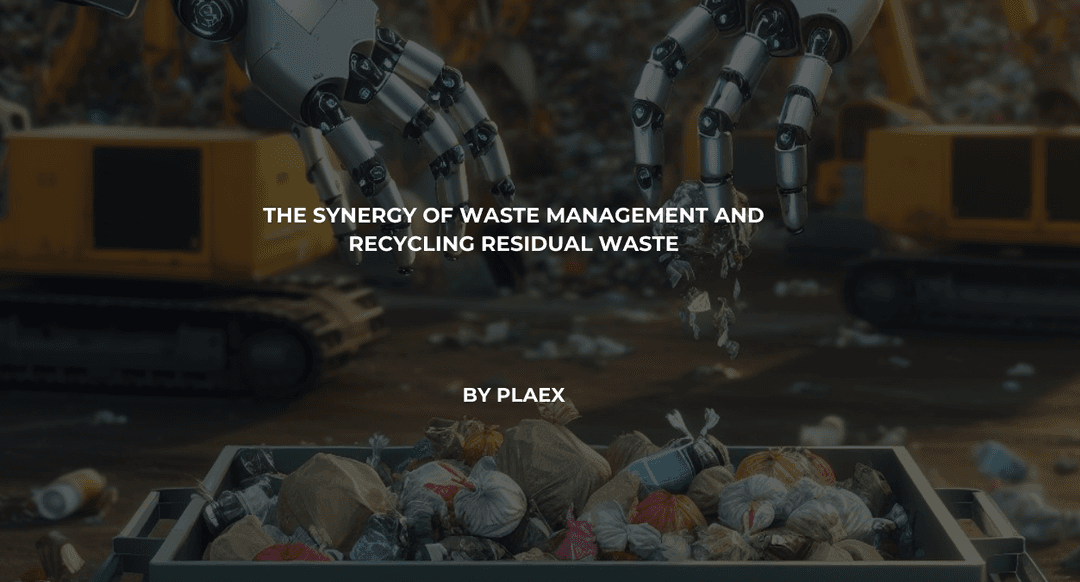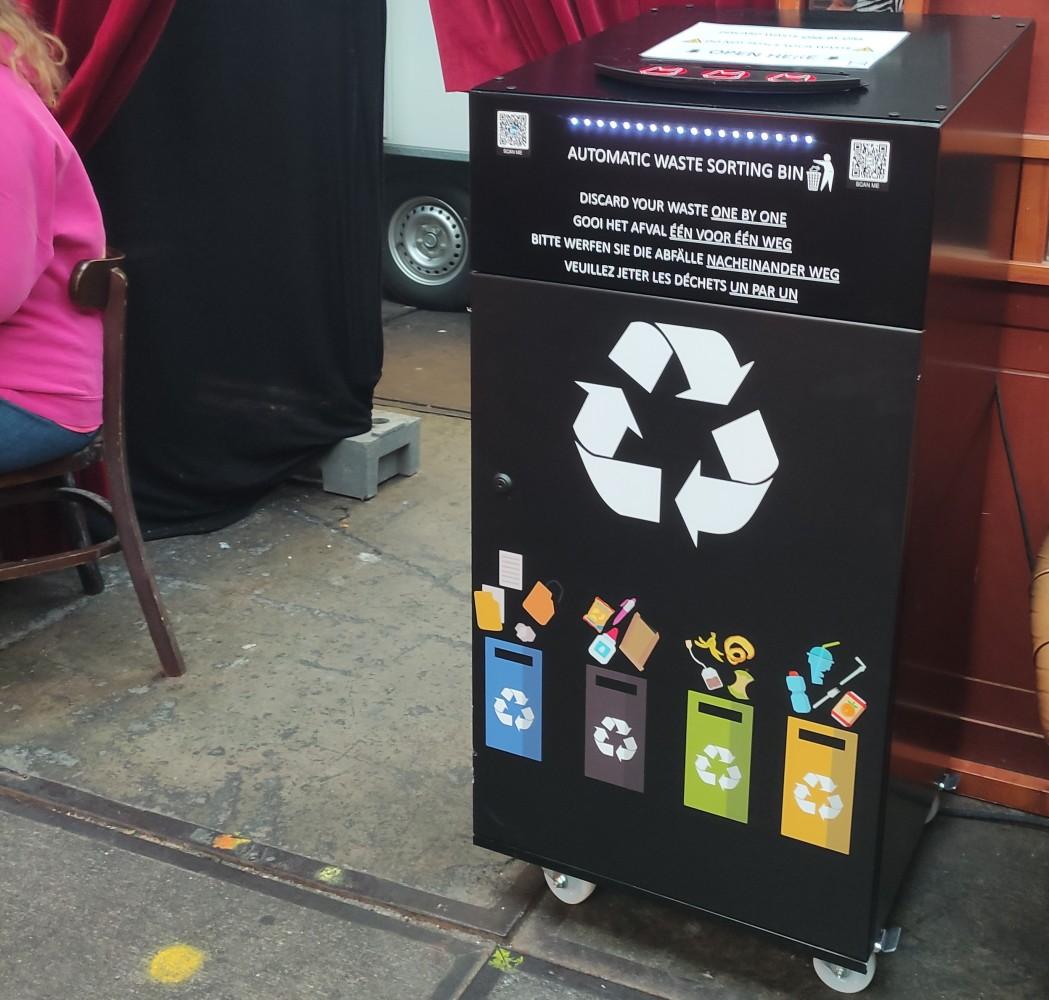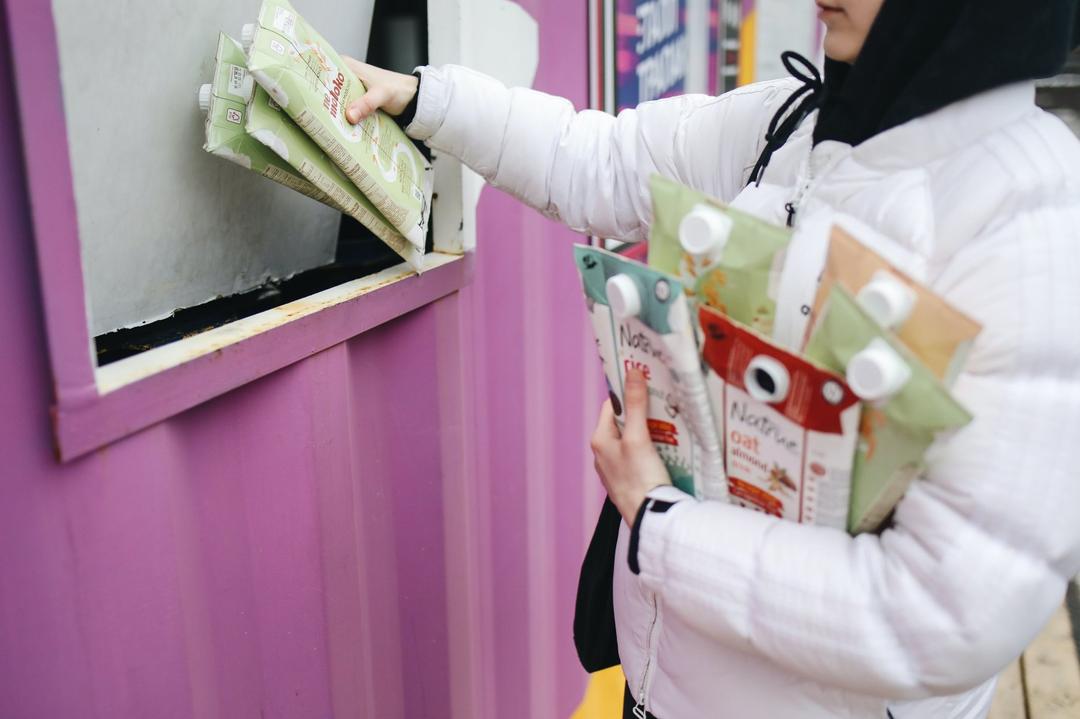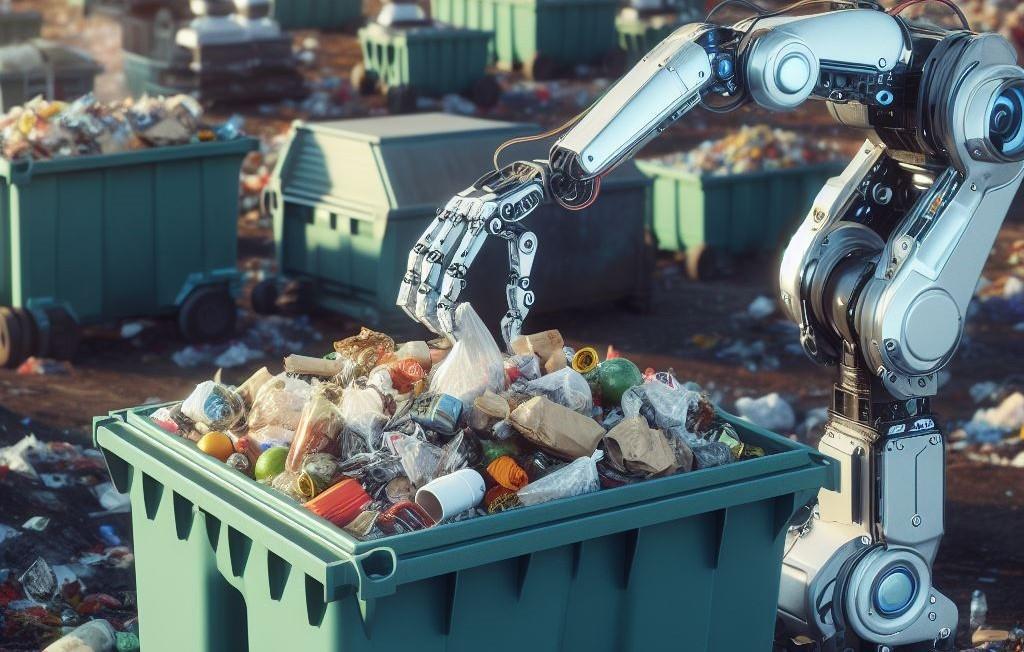The Synergy of Waste Management and Recycling Residual Waste
22 November 2023, By PLAEX Technologies

The synergy between waste management and residual waste involves the integration of recycling practices and sustainable strategies to effectively minimize the environmental impact of non-recyclable materials. Integration of recycling in waste management practices plays a pivotal role in reducing the volume of residual waste and minimizing its impact on the environment.
Finding sustainable solutions for residual waste involves innovative strategies to reduce, handle, and dispose of non-recyclable materials without harming the environment. This article will discuss the methods, challenges, and strategies involved in the synergy of waste management and recycling residual waste, emphasizing the importance of adopting innovative approaches for a more environmentally friendly and resource-efficient world.
What is Waste Management?
Waste management is a comprehensive process crucial for maintaining environmental sustainability and public health. It involves the collection, transportation, treatment, and disposal of various types of waste materials generated by human activities.

The proper management of waste is essential to minimize its adverse impact on the environment, wildlife, and human health. Improper waste management can lead to pollution, contamination of water sources, soil degradation, and health hazards for people and communities.
Methods and processes involved in waste management vary depending on the type of waste and regional regulations. These methods include recycling, landfilling, composting, and waste-to-energy technologies. Each method has its advantages and challenges, with recycling standing out as an environmentally friendly approach that promotes the reuse of materials, reducing the burden on landfills and minimizing resource depletion.
Garby plays a crucial role in achieving better recycling by utilizing advanced robotics and artificial intelligence to sort and process waste effectively. Our smart waste bin can identify recyclable materials and automatically sort waste, thereby enhancing the precision and efficiency of recycling operations.

The environmental impact of ineffective waste management is significant. Landfills release greenhouse gases such as methane, contributing to climate change. Moreover, toxic substances from improperly disposed waste can enter into the soil and water, contaminating ecosystems and posing health risks to both humans and wildlife. Therefore, the efficient management of waste is crucial for a sustainable future.
The use of robotics in waste management not only reduces the labor scarcity in the industry but also allows businesses to process more waste and lessen the quantity that ends up in landfills. Garby's technology aligns with the environmentally friendly approach of recycling, as it promotes the reuse of materials, reduces the burden on landfills, and minimizes resource depletion. Schedule a free consultation meeting to try our revolutionary waste management solution today!
Understanding Recycling and Residual Waste

Recycling is a fundamental component of waste management, involving the transformation of waste materials into reusable products. It aims to reduce the consumption of fresh raw materials, energy usage, and air and water pollution. Recycling processes vary based on the material being recycled, including paper, plastics, glass, and metal. These materials undergo collection, sorting, processing, and manufacturing stages to produce new products.
Residual waste, on the other hand, refers to materials that cannot be easily recycled or composted. This waste includes items like certain plastics, hazardous materials, and contaminated waste. Managing residual waste poses challenges due to its non-recyclable nature and the potential environmental harm it can cause if improperly disposed.
Challenges associated with residual waste management involve finding efficient disposal methods that don't harm the environment. Landfilling residual waste can contaminate soil and groundwater, while incineration can release harmful emissions into the atmosphere. As such, innovative strategies are needed to handle and minimize residual waste effectively.
Finding sustainable solutions to reduce and manage residual waste is essential for minimizing its impact on the environment. Garby provides a sustainable solution for recycling residual waste, which comprises materials that cannot be easily recycled or composted. It uses artificial intelligence, machine learning, and a proprietary mechanical design, to identify, classify, and sort waste at the source, ensuring high material purity and recyclability.
Contact us now to learn more!
Recycling in Waste Management
The integration of recycling in waste management practices holds immense significance on various fronts. Recycling offers numerous benefits, including the conservation of natural resources, energy savings, and the reduction of greenhouse gas emissions. Recycling reduces the need for raw materials extraction and preserves natural habitats and ecosystems by reusing materials.
Moreover, recycling plays a crucial role in reducing the volume of residual waste. When materials are recycled instead of being sent to landfills or incinerated, it decreases the burden on waste disposal facilities and mitigates environmental pollution. Recycling also contributes to economic growth by creating job opportunities in the recycling industry and fostering a circular economy model.
The reduction of residual waste through effective recycling practices positively impacts both the environment and public health. Communities can experience cleaner air, water, and soil, leading to improved overall well-being by decreasing the amount of waste sent to landfills.
Future Prospects in Sustainability

Several strategies can facilitate the synergistic relationship between waste management and recycling. Advanced technologies play a pivotal role in enhancing recycling processes, making them more efficient and cost-effective. Innovations such as automated sorting systems like Garby and Garcia enable the separation and processing of various materials with the goal of improving recycling rates.
The future of waste management and recycling lies in adopting innovative approaches and sustainable practices. Continual advancements in recycling technologies, such as advancements in material recovery processes, are crucial for increasing the scope and efficiency of recycling efforts. These technological advancements contribute to achieving higher recycling rates and reducing the environmental impact of waste.
Garby, the smart waste bin, and Garcia, the garbage seer, represent a future prospect in sustainability and recycling through their combined functionality in waste management. Garby utilizes advanced robotics and artificial intelligence to automatically sort and segregate different types of waste, while Garcia employs cutting-edge technology to detect and identify specific items within the waste stream.
The concept of a circular economy is gaining traction as a sustainable approach to waste management. This approach aims to minimize waste generation by designing products that can be easily recycled or repurposed at the end of their lifecycle. Embracing a circular economy model involves rethinking production processes, product design, and consumption patterns to create a closed-loop system where materials are reused, recycled, or composted.
Click here to discover how these innovative systems work together to streamline the recycling process and enhance the effectiveness of waste management practices.
Final Thoughts
Integrating recycling in waste management practices reduces the volume of residual waste, thereby lessening the burden on landfills and mitigating environmental pollution. However, managing residual waste presents challenges due to its non-recyclable nature and potential environmental harm if improperly disposed.
Innovative strategies are crucial in finding sustainable solutions for residual waste. Utilizing advanced technologies, such as automated sorting systems, and embracing the concept of a circular economy play pivotal roles in enhancing recycling practices and minimizing the environmental impact of waste. The concept of a circular economy involves rethinking product design and consumption patterns to create a closed-loop system where materials are reused, recycled, or composted, thereby reducing waste generation.
The future of waste management and recycling relies on continual advancements in recycling technologies, sustainable practices, and the widespread adoption of a circular economy model. Embracing these innovative approaches is essential for creating a more environmentally friendly and resource-efficient world.
Book a free consultation meeting with us to explore how our solutions can help your business contribute to a circular economy and achieve more sustainable waste management practices.
FAQ (Frequently Asked Questions)
How can I recycle easier and more efficiently?
Garby offers an innovative solution to help individuals and businesses recycle more easily and efficiently. The smart waste bin automatically sorts waste into four different categories, eliminating the need for manual sorting and reducing the chance of cross-contamination.
Can two objects be thrown inside Garby at once?
Yes! However 2 different waste types at once is a cross-contamination event, and it will all go to residual waste.
How do I know when the smart bin is full?
The fill levels are indicated on the front lights, and you can see this on the online dashboard.
Can I know how much kg of waste is produced?
Yes! This is all shown on the dashboard as Garby has an integrated weighing scale.
What do the different lights mean?
Blue indicates paper waste, green indicates organic waste, yellow indicates PMD waste and brown indicates residual waste.